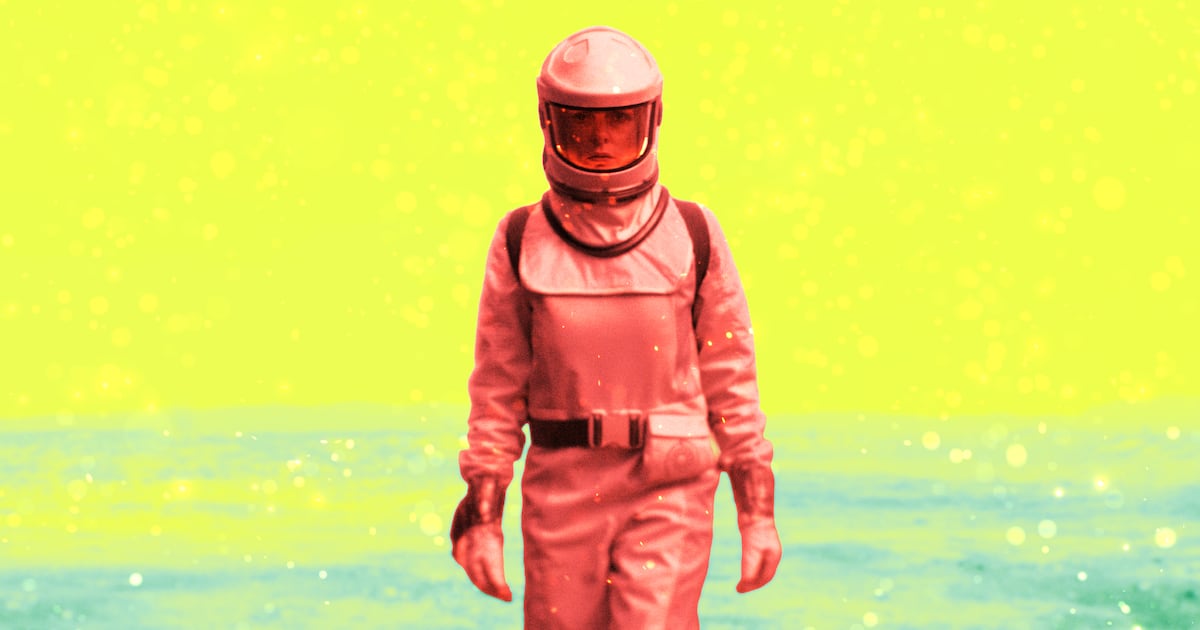Netflix might crank out some of TV’s most diabolical social experiments (looking at you, The Ultimatum and Love Is Blind!) but with its new reality show Down for Love, the streaming giant proves it contains multitudes.
Unlike most modern dating shows, which revel in making their participants as uncomfortable as possible for our entertainment, Down for Love is a gentler, more organic form of exploration. Based in gorgeous New Zealand, the series follows several young daters with Down syndrome as they search for love. The five-episode series first aired last year in New Zealand and made its debut on Netflix Aug. 11.
Down for Love, which was produced in consultation with New Zealand Down Syndrome Association, follows 10 people with Down syndrome who are searching for their soulmates. Among them are actress Libby Hunsdale, who recently starred in the 2021 film Poppy, award-winning photographer and swimming champ Carlos Biggemann, and 18-year-old model Lily-Mae Ivatt Oakley.
The daters of Down for Love cover a wide variety of interests, talents, and accomplishments. There’s Josh, a bubbly soul who loves clubbing, and there’s Aelinor—a shyer, quieter person with fiery red hair, who winds up catching the eye of the very extroverted, Bolivian-born polyglot Carlos. There’s Leisel, who we quickly discover is an absolute wizard at miniature golf, and there’s Brayden—who is admittedly not nearly as good at golfing but is very good at supporting Leisel and affirming just how much he cares about her.
On the surface, Down for Love has a lot in common with Love on the Spectrum—although the two do not share a producer. Love on the Spectrum, another carefully crafted feel-good dating series that’s based in Australia, documents the romantic lives of people with autism. Both series follow a small group of people on a quest for love, and both include sessions with dating coaches to help their subjects navigate dating and intimacy. (Love on the Spectrum comes from Northern Pictures, while Attitude Pictures and TVF International produced Down for Love.)
Speaking with the New Zealand-based online magazine The Spinoff, Down for Love producer Robyn Paterson noted that Attitude founder Robyn Scott-Vincent has made it her mission to enlighten people on disability issues after her own son was barred from attending the family’s local school due to his disability. “She felt like if people understood more about living with disability, that perhaps that would start to change people’s perceptions,” Paterson said.
Down for Love spends a little less time with its dating coaches than Love on the Spectrum does/ The latter series also focuses on the already-established couple Jimmy and Sharnae Berresford a little more robustly than Down for Love centers its own pre-existing match, Brooke and Jesse. By the end of Down with Love, I found myself craving the anchor that Jimmy and Sharnae provided in the other series. As entertaining as it can be to watch people go on blind dates, a stronger presence from Brooke and Jesse would have allowed the series to display a different, more advanced kind of romance.
Those who found Love on the Spectrum’s narration and plinky-plunky music condescending will likely have similar issues with Down for Love, which does not treat its subjects as oddities but can nonetheless feel a little precious in certain moments. Often, the most striking beats of this series are those that feel universal—like the excitement Carlos feels when he makes his girlfriend, Aelinor, his grandmother’s famous cookies, or the nervousness Libby feels when she has to reject one of her dates.
At times, however, I found myself wishing for something a little more candid. The commendable protectiveness that Down for Love extends toward its subjects can also put them in a bit of a box, as family members and friends (and the narrator) step in to help explain their experiences. The show is at its best on dates, when its subjects can mostly speak for themselves.

That said, Down for Love does get pretty creative in staging its meet-ups—which include a private dance lesson, a rock climbing session, and (perhaps most enviably) a private tour of the New Zealand-based special effects and prop house Wētā Workshop. In one particularly striking date, the lucky couple—Emma and John—fall in love among the sunflowers at Auckland’s Van Gogh Alive exhibit.
More than anything, it’s moments like these—like when Emma tears up among the sunflowers and John puts his arm around her—that make Down for Love so effective. Few things scream “feel-good” like an open-hearted series that’s genuinely interested in how people fall for one another, and Down for Love understands that its subjects crave connection for the same reason as everyone else. As one contestant puts it at the very start of the series, “That’s what makes you human.”
Liked this review? Sign up to get our weekly See Skip newsletter every Tuesday and find out what new shows and movies are worth watching, and which aren’t.






